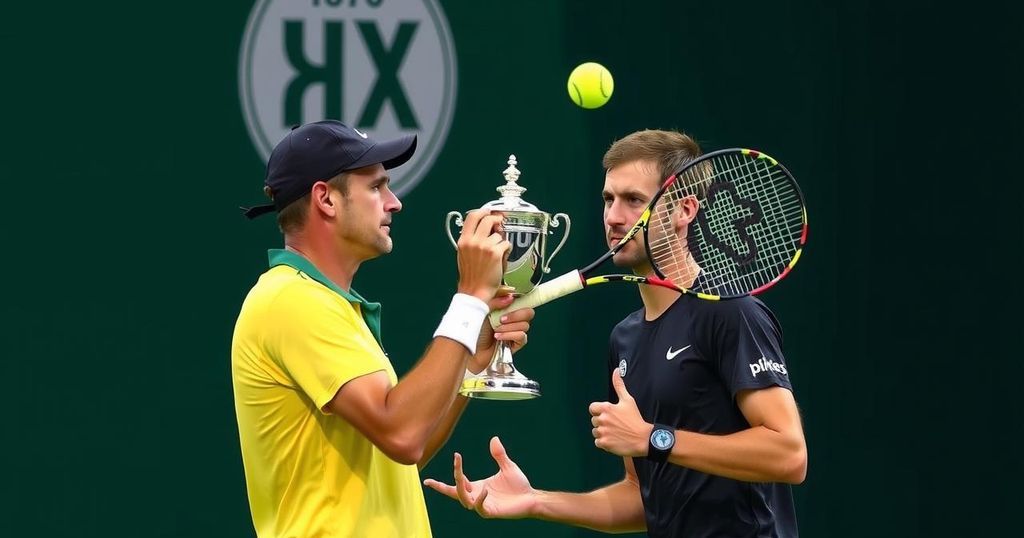Returning to the NCAA: 2024 Female Olympic Medalists Prepare for Competitive Season
Summary
The article highlights the return of four female Olympic medalists from the 2024 Paris Olympics to the NCAA swimming competition. Notable athletes include Torri Huske of Stanford, Gretchen Walsh of Virginia, Mona McSharry of Tennessee, and Emma Weyant of Florida. Each athlete has made significant contributions during the Olympics and is anticipated to elevate their respective college teams this season.
As the anticipation builds for the Los Angeles 2028 Olympics, several esteemed Olympic medalists from the 2024 Paris Games are returning to the collegiate stage, particularly within the NCAA swimming circuit. This upcoming season will see four distinguished female athletes who brought home Olympic medals making their way back to the collegiate competition, mimicking the men’s side where only one athlete is an international student. Torri Huske, Stanford Torri Huske stands prominently among these athletes. Her impressive athletic achievements at the 2024 Olympics include winning gold in the 100 butterfly and the women’s 4×100 medley relay, alongside a silver in the 100 freestyle. Notably, Huske defeated the world record holder in the butterfly event and emerged as the most accomplished American swimmer of the Games. She is set to reinvigorate the Stanford team, which had experienced a modest season last year but will gain immense energy from her competitive spirit and talent as she pursues her first individual NCAA title. Gretchen Walsh, Virginia Gretchen Walsh also made a significant mark at the Olympics, earning a silver medal in the 100 butterfly and contributing to gold medal victories in the relays. With a stellar NCAA season behind her, where she broke several records, Walsh has shown her capability to transition from short-course to long-course swimming, affirming her status as a strong contender. Returning to Virginia, she holds the potential to further solidify her reputation as an elite swimmer this season. Mona McSharry, Tennessee From Tennessee, Mona McSharry returns to her collegiate responsibilities after capturing bronze in the 100 breaststroke at the Olympics, marking a monumental achievement for Ireland. Having already demonstrated her prowess in both individual and relay events in the NCAA, McSharry is anticipated to play an essential role in her team’s performance this season, continuing to break records. Emma Weyant, Florida Emma Weyant, who also clinched a medal with her bronze in the 400 IM at the Olympics, is set to further impact the Florida swimming program significantly. Her prior experience and performance in NCAA competitions lend her a leadership role within her team as she aims to build upon last year’s successes. In addition to these medalists, other notable contributors include Anna Peplowski and Emma Weber, who claimed medals as relay participants. The anticipated return of these talented athletes to the NCAA will not only elevate the level of competition but also serve as an inspiration for aspiring swimmers across the nation.
The article focuses on the thrilling intersection of collegiate swimming and Olympic competition, specifically highlighting the return of Olympic medalists to the NCAA following the 2024 Paris Olympics. It emphasizes the success of female swimmers who have made remarkable strides at the Olympics and how they are returning to their respective colleges. This transition reflects both the athletes’ dedication to their sport and emphasizes the importance of the NCAA platform as a nurturing ground for future talent. The article discusses the distinct achievements of each swimmer, providing insight into their Olympic performances and their implications for the upcoming collegiate season.
In summary, the return of Olympic medalists like Torri Huske, Gretchen Walsh, Mona McSharry, and Emma Weyant to the NCAA creates an exciting narrative for the upcoming swimming season. Their notable Olympic experiences not only enhance the collegiate competitions but also inspire future generations of swimmers. The combination of their individual accolades and the potential for further achievements solidifies their status as prominent figures in both NCAA and Olympic swimming.
Original Source: swimswam.com







Post Comment